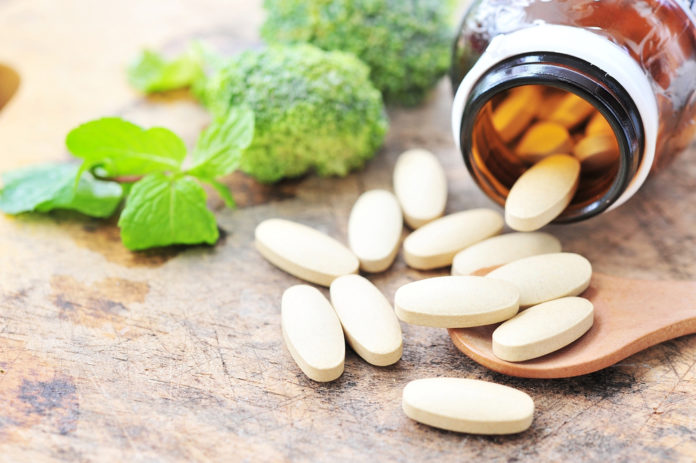Although following a vegetarian or vegan lifestyle is based on an individual’s own preference, plant-based diets have been suggested to foster a healthy weight and reduce chronic disease. But when cutting out animal proteins, the diet may become off-balance and require supplementation to keep nutrients stabilized and present. These vegan and vegetarian supplements deserve some consideration if following such diets or lifestyles.
What Is Vegetarianism and Veganism?
Both vegetarians and vegans dismiss animal meats. Each diet is plant-based and embraces nutrient-rich, whole foods, including whole grains, colorful fruits and veggie, nuts, seeds, and legumes. Vegetarian practices do vary and are further broken down into subgroups:
- Lacto-vegetarian: includes dairy products, including milk, cheese, and dairy
- Lacto-ovo vegetarian: eats as a lacto-vegetarian but includes eggs
- Semi-vegetarian: tends to exclude red meats but will include chicken, dairy products, and other animal-derived products
Veganism is a lifestyle in which all animal products are excluded, even in the forms of gelatin and clothing crafted from leather and other animal-created materials. All foods that are derived from animals are avoided, ultimately eliminating food groups and raising the risk of associated vitamins and minerals.
Minerals and Vitamins for Vegetarians and Vegans
1. Iron
Iron is a mineral naturally found in red meats including beef and pork. It is absolutely essential for oxygenating blood, supplying it to the organs and body system. Inadequate iron intake increases the risk of iron deficiency anemia, initiating fatigue and potentially delay the development of unborn babies. Iron supplements are commonly prescribed to counteract against iron deficiency, though beans, dried fruits, iron-fortified grains, and dark, leafy greens also are rich iron sources.
2. Vitamin B12
This B vitamin is primarily found in animal products, including meat, fish, poultry, eggs, and milk and its relative products. Individuals following a vegan lifestyle are more apt to become deficient in vitamin B12, unless consuming breakfast cereals and grains it widely fortifies. While symptoms are oftentimes rare, individuals lacking in the vitamin may experience fatigue, breathlessness, numbness, poor balance, and memory loss, as it is a critical component to healthy blood and nerve cells.
3. Calcium
If eliminating milk and dairy products, calcium definitely bares some consideration. Calcium is most commonly known for its imperative role in bone support and maintenance, yet it is often required for proper nerve function and muscle contraction along with effective blood clotting. Calcium supplementation deserves some thought, especially if not reaching adequate intake through other calcium-containing sources, including fortified tofu, green beans, spinach, bok choy, broccoli, and almonds.
4. Vitamin D
Vitamin D-containing foods include fatty fish, beef liver, cheese, and egg yolks. But like vitamin B12, vitamin D may fortify cereals along with dairy products and orange juice. Deficiencies in vitamin D may include bone loss, as the mineral assists calcium absorption for bone support and further offers other established health benefits. Interestingly, vitamin D can be obtained through adequate sunlight. Combining the risk factors of not obtaining direct sunlight (individuals with dark-pigmented skin, overweight and obese individuals, females, older individuals, people residing in darker or cooler climate geographic locations, fat malabsorption, a sedentary lifestyle, and kidney disease) paired with vegetarian or vegan diet practices increases the risk of vitamin D deficiency.
5. Zinc
This mineral is virtually established in all parts of the body, primarily in the skeletal muscles and bones, though also found in the kidneys, pancreas, retina, teeth, hair, blood cells, and other body organs. Zinc can be obtained from beef, pork, and shellfish, making deficiency more at risk if cutting out animal meats. However, it can also be found in peanuts and legumes, considered to be esteemed plant-based proteins. Often unnoticed zinc deficiency symptoms include hair loss and changes in appetite, weight, and taste and small sensations. More severe risks include stunted growth, diarrhea, and compromised immune function.
6. Iodine
Iodine is primarily found in milk and dairy products, fish, shellfish, meat, poultry, and eggs. Vegetarians and particularly vegans are at risk of iodine deficiency, as they mostly dismiss iodine-rich sources from their diets. The mineral is imperative to sufficient thyroid function and ensuring proper brain development of baby during pregnancy. Deficiency can compromise a wide variety of body processes and metabolism if not obtaining through supplementation or additional iodine-containing foods, including nuts, bread, and fruits and vegetables.
7. Omega-3 Fatty Acids
Omega-3 fatty acids are mainly known for their supply within fatty fish, including tuna, mackerel, and sardines, though it is also found in flaxseed, almonds, and peanuts. The healthful fat provides a signifying role in reducing heart disease and inflammation while playing a crucial role in normal growth, development, and brain function. Insufficient intake may create symptoms of fatigue, poor memory, mood swings or depression, and heart problems. However, omega-3 fatty acid supplements are primarily in the form of fish oil, further inhibiting particular vegetarians and vegans’ desires to utilize them. However, flaxseed oil may be an executed supplement for vegetarians and vegans who avoid fish altogether.
So whether considering the implementation of a vegetarian or vegan diet or completely delved into one, it is absolutely critical to consider the nutrients that may be lacking. Though a plant-based diet serves valuable benefits both environmentally and physically, becoming deficient in associated nutrients and protein can stimulate their own health concerns. A primary health provider and dietitian can provide individual treatment and management if considering a partial or full-fledged plant-based diet, ultimately reducing the risk of prospective deficiencies.
References:
Nutrients of Concern for Individuals Following a Plant-Based Diet. Today’s Dietitian. Available at: http://www.todaysdietitian.com/pdf/courses/PBDNutritentsofConcern.pdf.
Vegans May Lack Essential Nutrient Intake. Today’s Dietitian. Available at: http://www.todaysdietitian.com/news/051116_news.shtml.









